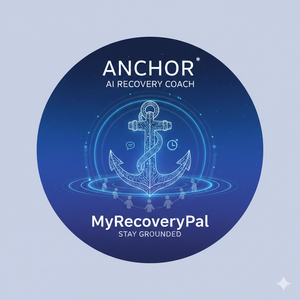
In a world built for ease, learn to lean into gentle challenges — and discover your true strength
When Convenience Becomes Your Comfort Zone
It’s never been easier to live in total comfort. Groceries appear at your doorstep, cars warm your seats before you climb in, and your favorite shows await you on demand. I love convenience as much as anyone — especially when the cravings hit. But something in me has learned that growth demands discomfort. In my sobriety journey, I discovered that small daily challenges can be the secret ingredient to building resilience, confidence, and lasting joy.
Why Modern Life Fails to Test Us
- Endless Ease: From curbside pickup to voice-activated assistants, life optimizes for minimal effort — but minimal effort doesn’t build strength.
- Instant Gratification: Our brains adapt quickly to rewards, making us restless when the next dopamine hit is delayed.
- Stagnant Comfort: Without friction or challenge, days blur together, and we wonder why we feel flat — even when everything’s “good.”
In recovery — or any personal growth path — this constant comfort can backfire. When triggers or setbacks appear, we lack the muscle memory to lean into struggle and say, “I’ve got this.”
The Power of Small Discomforts
“A meaningful, fulfilling day requires small moments of discomfort.”
Think of discomfort like a stretch: you wouldn’t bench-press your bodyweight your first gym day, but ten extra pounds pushes you to grow. Similarly, a brief cold shower, a challenging article, or an honest conversation can:
Build Mental Resilience
- Each tiny win over discomfort teaches your brain, “I can handle this.”
Sharpen Gratitude
- Hard-earned comfort feels sweeter after a momentary struggle.
Foster Personal Growth
- True learning happens when we step outside our comfort zone.
Putting Discomfort into Practice
The Morning Chill
- What to Do: End your shower with 30 seconds of cool water.
- Why It Works: That shock-to-the-system jumpstarts your day and reminds you of your inner strength.
The Digital Detox Window
- What to Do: Pick one hour daily with no screens — read a book, journal, or take a walk.
- Why It Works: You’ll battle the impulse for instant entertainment and build tolerance for quiet reflection.
The Tough Conversation
- What to Do: Schedule a 10-minute chat with someone you trust about a topic that scares you — an apology, a boundary, a personal ask.
- Why It Works: Speaking your truth, even in a safe space, dissolves shame and strengthens your voice.
The Learning Stretch
- What to Do: Dedicate 15 minutes to a subject that intimidates you — coding basics, a foreign language, or recovery literature like The Recovery Book.
- Why It Works: Facing cognitive discomfort builds confidence in tackling bigger challenges.
The Gratitude Pause
- What to Do: Three times today, stop and list one thing you’re truly grateful for — no matter how small.
- Why It Works: It breaks autopilot and turns your attention to growth rather than setbacks.
Discomfort and Recovery: A Perfect Pair
In sobriety, triggers are inevitable — life’s big discomforts. But when you’ve practiced small daily challenges, those triggers feel less like crushing waves and more like manageable ripples. You learn to:
- Notice the Urge: Recognize the first twitch of a craving (mindful breathing helps).
- Hold Your Ground: Use your cold-shower courage to delay reacting, even for a minute.
- Choose a Tool: Whether journaling or texting a sponsor, you already know how to face discomfort and find relief on the other side.
Make Discomfort Your Ally
You don’t need a day-long struggle to grow — but you do need to lean into brief, deliberate challenges. In each small act of discomfort, you’re training your mind, body, and spirit to handle life’s inevitable storms. Over time, those tiny ripples become waves of confidence, resilience, and genuine fulfillment.
Which small discomfort will you invite today? Clap if you’re in, comment your first challenge below, and follow Normalize Sobriety for more tools to live boldly and grow every day.


Comments (0)
Login to leave a comment.
No comments yet. Be the first to share your thoughts!